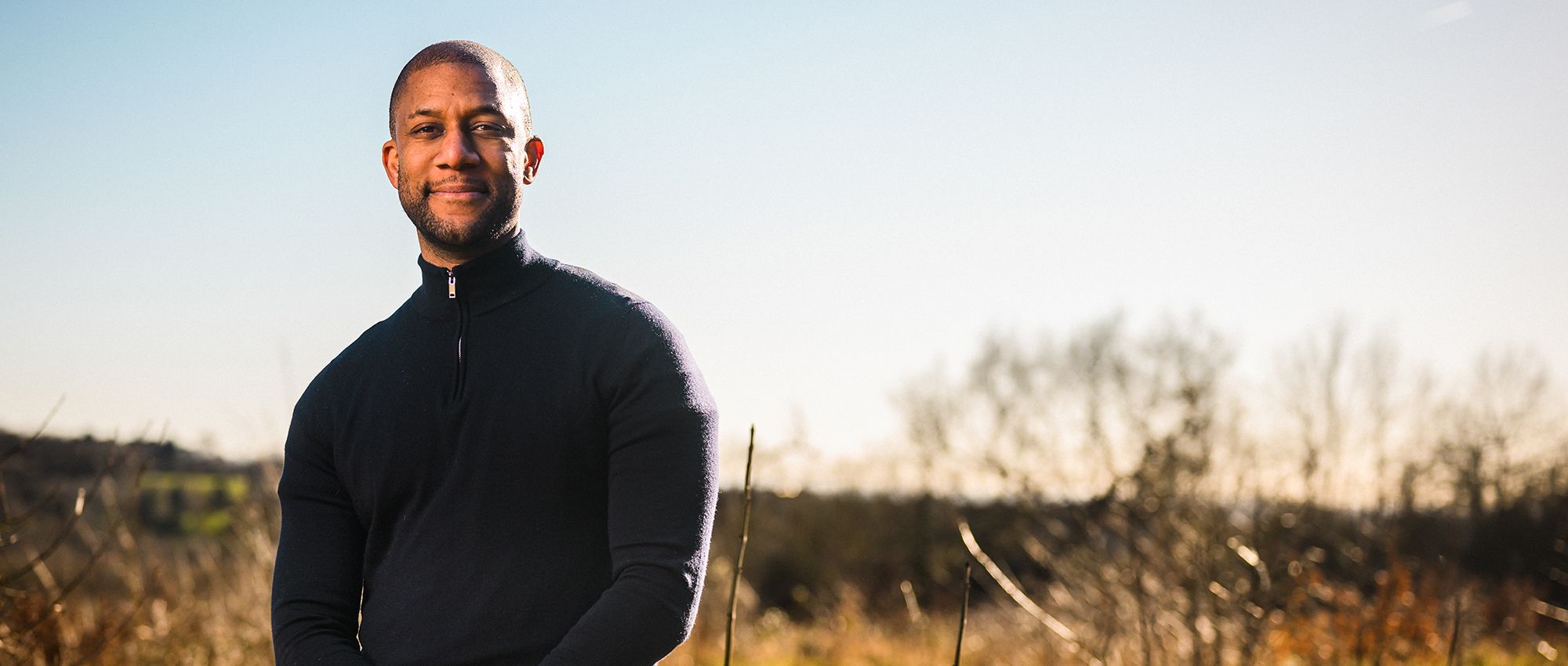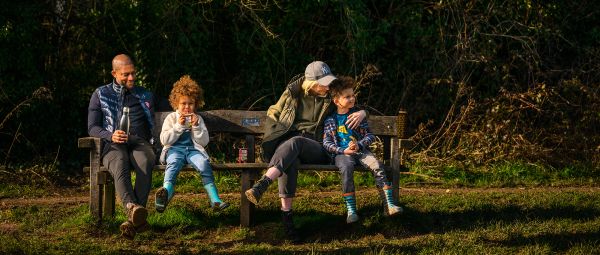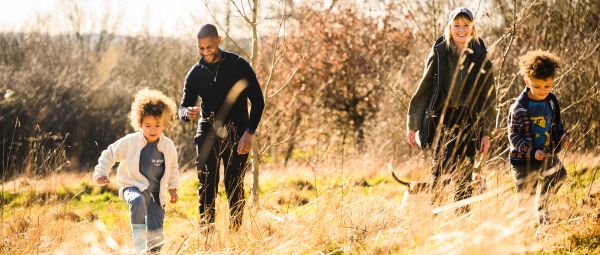Feeling at home in the countryside
Nick, who was born in the UK of West Indies heritage, looks back at discovering walking in the countryside, the lack of diversity in the outdoors and outdoors brands, and his passion to make sure his kids get the full countryside experience.

I grew up in Harlesden, north west London, which was pretty industrial at the time. There was a paddock with horses behind my school and that was about the closest we got to the countryside. I was in the Scouts and we had a couple of weekends camping but in the early part of my adult life I wasn’t very outdoorsy.
Discovering the joy of walking
I was born in the UK of West Indies heritage. My parents came to the UK when they were very young with my grandparents as part of the Windrush generation. When people came over from the West Indies they tended to group together in communities within large cities. We weren’t massively exposed to going for long walks. We didn’t go to areas of outstanding natural beauty like the Lake District. I can’t speak for all people of my background and generation, but I think there’s a lot to be said for experiencing the UK in that way and I’d like to think that my children will have a different experience in that respect.
When I met Sue, my wife, who is from Devon, she was a lot more connected to the countryside and she wanted to be near greenery, and she wanted to live near fields where she could go for walks. I remember when we first met, we went to visit friends who lived in more rural areas than I was used to, and we went out for walks in the countryside, and I was wholly unprepared in terms of my clothing and footwear. I found it a little frustrating but also interesting because I could see that there was lots of stuff that people who live in the countryside or who go for long walks, were used to and I just wasn’t.

The importance of representation
Being prepared for the countryside is important. Now I am better prepared and can enjoy it more. Brands have a role to play because representation is key. If you don’t see people who look like you doing things outside of what you are used to, you only have your imagination and it’s hard to bridge that gap. So brands and organisations need to show people what’s possible which will plant the seed that rambling, for example, is not something just for white people who live in rural areas.
Gaining balance
But over the years I’ve become more and more used to the countryside and now that we live in Hertfordshire, we have fields in our back garden and I do go for walks. I find it quite relaxing. A few weeks ago I had a really tough day at work with some really stressful meetings and I really needed to clear my head. So I put on my boots and went for a walk for 45 minutes. A few years ago I probably wouldn’t have done that were it not for having got more comfortable in the countryside.

Feeling at home in the countryside
There have been occasions in the countryside where I have felt like I was the only black person in the area. That can create lots of feelings that aren’t always easy to explain or that people may not identify with because you haven’t had the same lived experience. There can be a feeling of being external to the experience, like observing it from the outside. That is waning as I spend more time in the countryside but I still don’t see lots of people who look like me there. It’s important to me that my kids grow up knowing that they are able to spend time in the countryside and able to experience the UK in that way. They should feel able to go for long walks, to see the countryside and to enjoy country pubs. I don’t want them to feel that they shouldn’t be in these places. Exposure and representation are important in this respect. We go to the Lake District each year - we go for walks and climb mountains. That’s helping my sons to experience the countryside and to feel comfortable there, in a way that I didn’t as a child.